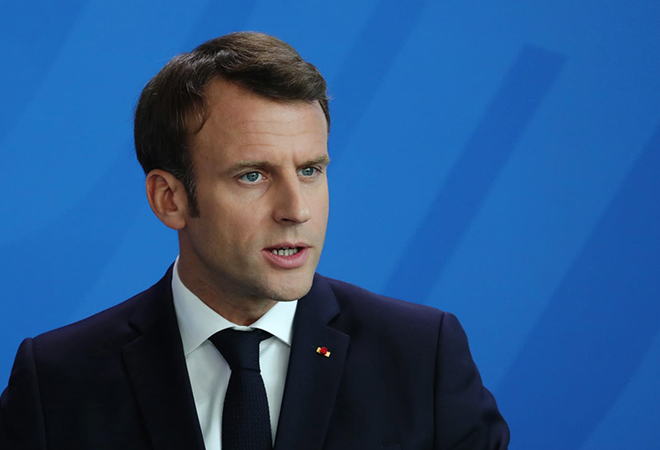Because of geopolitical changes, we are living the end of Western hegemony, and the West needs to cooperate with Russia in order to create a new system of confidence and security in Europe, French President Emmanuel Macron said at the meeting with the ambassadors. Macron is not necessarily dissenting with the official positions of Brussels or Washington — he is merely acknowledging a reality that both capitals are aware of. The global balance of power has irreversibly shifted and the transatlantic alliance must adapt to the realities of a multipolar world.

Valdai Club: Why does Macron make such statements that seriously dissent with the official positions of Brussels and Washington?
Samir Saran: Macron is not necessarily dissenting with the official positions of Brussels or Washington—he is merely acknowledging a reality that both capitals are aware of. The global balance of power has irreversibly shifted and the transatlantic alliance must adapt to the realities of a multipolar world. On Russia, Macron was signalling that 20th century frameworks and thinking can no longer form the basis of engagement. He is echoing similar voices from other parts of Europe. Finland, which holds the rotating EU presidency, has made similar statements.
As for why he made this comments now—it is clear that the EU is frustrated with the unpredictability of the Trump administration. Macron, who is styling himself as the EU’s leading political figure, was likely firing a shot across the bow so to speak. The Trump administrations response to a world in flux has manifested through unilateral postures and perhaps Macron and the EU are appealing to their primary partner for a more consultative and inclusive political engagement.
VC: Should we expect the policy of the European countries to be more independent from the US?
SS: Despite the friction in the transatlantic alliance, it would not be accurate to say that the EU will adopt policy postures that are detrimental to the US. Rather, it is likely that the EU’s foreign policy will not ape the US’ as it has in the past. Brussels, and the EU’s member states independently, are more likely to assert their own national and supra-national interests in this alliance. In other words, there will be a reconfiguration of decision making processes for the alliance. The US may no longer be able to dictate the foreign policy priorities of the EU.
There will likely be differences on some issues—such as climate change, Iran and on questions of managing the digital economy.
On Russia and China though, it is more likely that Brussels and Washington will strive for common ground. Ultimately, the alliance is bound by a shared history and common political and economic values. The idea of the ‘West’ is still a potent geopolitical construct that neither Europe nor the US will abandon. The depth of their institutional relationship will overcome the temporary Trump factor.
VC : Is it possible to make the relations between the EU and Russia soften?
SS: It may be difficult to predict the future of the EU-Russia relationship, but it is most certainly an imperative for both to develop and enhance their engagement. The acute differences on certain political issues such as Ukraine, Syria and NATO will be difficult to overcome. The challenge for both will be to manage these differences even as they engage on issues that are not affected by divisive propositions.
The future of this relationship will also depend on Moscow’s evaluation of Brussels. In the past, Russia has often played the role of disruptor. There are plenty of opportunities now for co-operation with the EU. Connectivity between Europe and Asia is one such domain. The EU has already unveiled an ambitious strategy for this region. Not only will such a partnership allow Moscow and Europe to find new areas of cooperation, but it will also allow Moscow to ease its dependence on China. Whether Moscow has the political capital to do this remains to be seen.
This interview originally appeared in The Valdai Club
